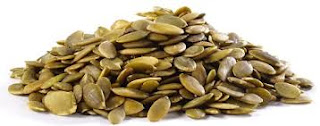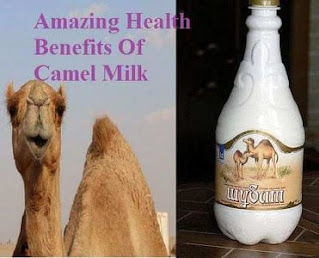Pumpkin seeds valued as a source of the mineral zinc and the World Health Organization recommends their consumption as a good way of obtaining this nutrient. If you want to maximize the amount of zinc that you will be getting from your pumpkin seeds, we recommend that you consider purchasing an organic pumpkin. Although recent studies have shown there to be little zinc in the shell itself (the shell is also called the seed coat or husk), there is a very thin layer directly beneath the shell called the endosperm envelope, and it is often pressed up very tightly against the shell. Zinc is especially concentrated in this endosperm envelope. Because it can be tricky to separate the endosperm envelope from the shell, eating the entire pumpkin seed—shell and all—will ensure that all of the zinc-containing portions of the seed will be consumed. Whole roasted, unshelled pumpkin seeds contain about 10 milligrams of zinc per 3.5 ounces and shelled roasted pumpkin seeds (which are often referred to pumpkin seed kernels) contain about 7-8 milligrams. So even though the difference is not huge, and even though the seed remains a good source of zinc.
2. They’re also high in the heart-healing mineral magnesium, which is also Nature’s natural relaxant;
3. Their high levels of easily-digestible protein help stabilize blood sugar when eaten as a snack throughout the day. Stable blood sugar means weight loss if you’re trying to lose.
4. High in Omega 3s, pumpkin seed oil has been shown in studies to reduce the incidence of benign prostatic hypertrophy (BPH)—a condition in which the prostate gland becomes enlarged.
5. Pumpkin seeds are also high in the prostate-protecting mineral zinc, making these seeds the ultimate snack for men’s health.
6. They’re a good source of blood-building and energy-boosting iron.
7. In animal studies, when pumpkin seeds were added to the diet, the anti-inflammatory results were comparable to the effectiveness of the drug indomethacin—without the side-effects.
8. Their phytosterol compounds are believed to lower cholesterol levels. Of nuts and seeds, pumpkin seeds have the second highest amount of sterols (next to sunflower seeds and pistachios which tied for first).
9. Pumpkin seeds are an excellent source of fiber which helps keep you full and digestion good and help to have a healthier heart.
10. Pumpkin seeds are rich in beta-carotene and other antioxidants with cancer-protective properties. pumpkin seed oil blocked the unhealthy prostate growth.
11. Pumpkin seeds are rich in zinc, a mineral that possesses anti-inflammatory properties, which can reduce the redness and scarring caused by acne.
12. The antioxidants, vitamins E and A, contained in pumpkin seeds help fight free radical formation and thus, reduce the incidence of premature aging.
13. Pumpkin seeds contain high doses of iron and L-lysine – two nutrients that can help control excessive hair fall.
14. Pumpkin seeds, being rich in zinc, help lower oxidative stress and the generation of inflammatory cytokines, both of which improve immunity.
15. Pumpkin seeds possess hypoglycemic properties that can aid glycemic control and by keeping a check on sugar help prevent diabetes.
Health Benefits of Pumpkin Seeds
1. They’re high in the sleep-enhancing amino acid tryptophan that converts to serotonin in your body and helps ensure a good night’s sleep;2. They’re also high in the heart-healing mineral magnesium, which is also Nature’s natural relaxant;
3. Their high levels of easily-digestible protein help stabilize blood sugar when eaten as a snack throughout the day. Stable blood sugar means weight loss if you’re trying to lose.
4. High in Omega 3s, pumpkin seed oil has been shown in studies to reduce the incidence of benign prostatic hypertrophy (BPH)—a condition in which the prostate gland becomes enlarged.
5. Pumpkin seeds are also high in the prostate-protecting mineral zinc, making these seeds the ultimate snack for men’s health.
6. They’re a good source of blood-building and energy-boosting iron.
7. In animal studies, when pumpkin seeds were added to the diet, the anti-inflammatory results were comparable to the effectiveness of the drug indomethacin—without the side-effects.
8. Their phytosterol compounds are believed to lower cholesterol levels. Of nuts and seeds, pumpkin seeds have the second highest amount of sterols (next to sunflower seeds and pistachios which tied for first).
9. Pumpkin seeds are an excellent source of fiber which helps keep you full and digestion good and help to have a healthier heart.
10. Pumpkin seeds are rich in beta-carotene and other antioxidants with cancer-protective properties. pumpkin seed oil blocked the unhealthy prostate growth.
11. Pumpkin seeds are rich in zinc, a mineral that possesses anti-inflammatory properties, which can reduce the redness and scarring caused by acne.
12. The antioxidants, vitamins E and A, contained in pumpkin seeds help fight free radical formation and thus, reduce the incidence of premature aging.
13. Pumpkin seeds contain high doses of iron and L-lysine – two nutrients that can help control excessive hair fall.
14. Pumpkin seeds, being rich in zinc, help lower oxidative stress and the generation of inflammatory cytokines, both of which improve immunity.
15. Pumpkin seeds possess hypoglycemic properties that can aid glycemic control and by keeping a check on sugar help prevent diabetes.







